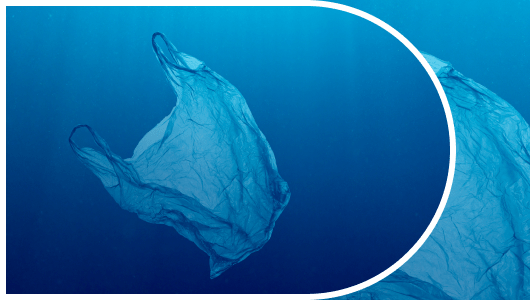
Solving the ocean plastic crisis



Senior industry leaders will share their insights
300 million tonnes of plastic waste are produced globally each year of which 8 million tonnes ends up in the ocean. The UNEP predicts that by 2050 there will be more plastic in the ocean than fish. Scientists have warned that we have now reached a tipping point, meaning sudden, substantial and irreversible changes are likely to occur.
Paradoxically, plastic can be the more environmental choice. Transporting and recycling glass can have a higher carbon footprint, aluminium carries a different set of environmental concerns and plastic is a cost-effective and protective packaging material. While the impact of ocean plastic is undisputedly negative, the usefulness of plastic remains.
As we approach COP26, consensus on how to address this crisis is unclear. The billions of plastic masks, gloves, PPE and swabs used every month as a result of the pandemic only increase the urgency to act. A dual approach must be taken to clean the ocean of the plastic and microplastic already there and prevent any more from entering. Coordinated and proactive action needs to take place on a global, governmental and corporate level, as relying on consumer choices is not enough.
This interview and panel discussion hosted by the Financial Times in partnership with SC Johnson and Conservation International focused on actionable strategies for addressing the ocean plastic crisis.
World-class business leaders and speakers
COP26
How will ocean plastics be addressed at COP26 and what can we expect from global leaders on this issue?
Plastic Packaging
What are organisations which rely heavily on plastic packaging doing to make a real impact in addressing this issue and how can they be held accountable?
Plastic Waste
Single-use plastic swabs, gloves, masks and PPE have saved lives during the pandemic, but what should the world do with this huge amount of plastic waste
Why Attend?

Understand
The big picture, how will COP26 address this crisis

Connect
And build relationships with some of the biggest names in your industry

Discover
Actionable strategies for addressing the ocean plastic crisis
Register to view on demand
FT Live Digital Dialogues - fully digital one hour event experiences delivering maximum engagement. Live webinars provide unique opportunities to engage global senior audiences. All access, digital passes include access to all the live sessions PLUS all sessions on demand for 30 days. Join the conversation.
We’re here to help
© Financial Times Live
FT Live and its journalism are subject to a self-regulation regime under the FT Editorial Code of Practice